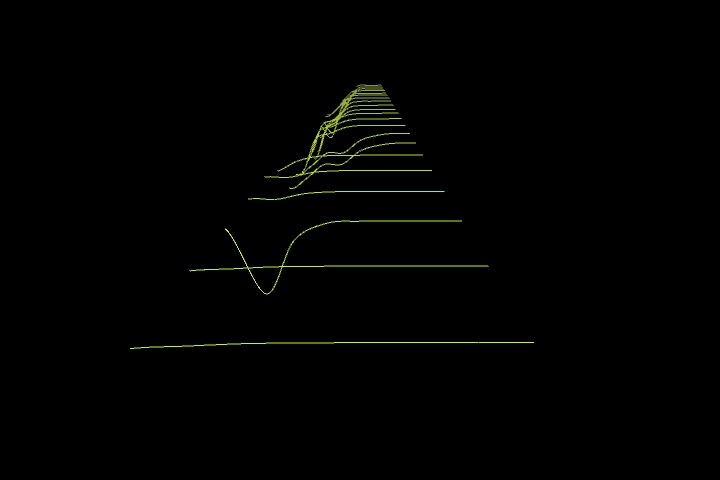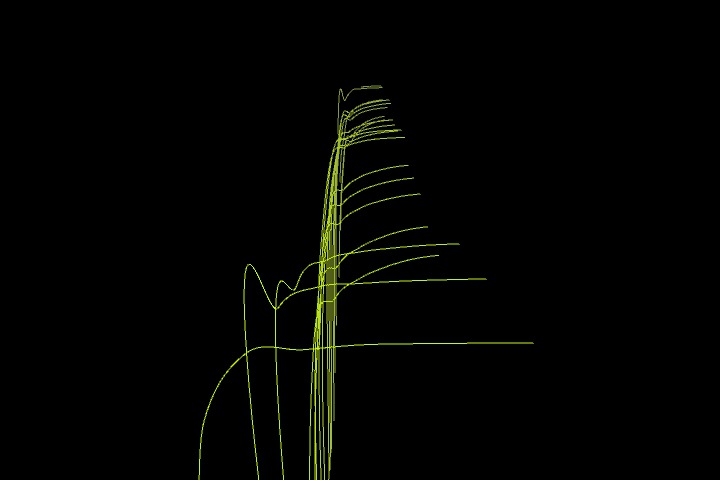I was hoping to have some success with ArrayLists today but I didn’t. I finally have the waterfall code down but it goes backwards from past to present instead of present to past. It looks kinda neat this way, though. I also added colour! For me, working in HSB seems to be more closely related to my headspace than RGB, so if I need colour I am going to stick to that for now.
This sketch uses linear averages of FFT which are really easy to compute and set up but the result is less than pleasing. I think tomorrow I will play with the log function and see if I can get something a little closer to what I think it should look like.


import ddf.minim.*;
import ddf.minim.analysis.*;
Minim minim;
AudioInput input;
FFT fft;
float[] newspectrum;
blob newblob;
ArrayList drawings;
int r;
void setup()
{
size(720,480,P3D);
smooth();
minim = new Minim(this);
input = minim.getLineIn(Minim.STEREO);
fft = new FFT(input.bufferSize(), input.sampleRate() );
drawings = new ArrayList();
// .add(index) .remove(index)
colorMode(HSB,1000);
}
void draw()
{
fft.forward(input.mix);
background(0);
newspectrum = new float[fft.specSize()];
for (int i = 0 ; i < newspectrum.length ; i++)
newspectrum[i] = fft.getBand(i);
newblob = new blob(newspectrum);
drawings.add(newblob);
for(int i = 0 ; i < drawings.size() ; i++)
{
blob b = (blob)drawings.get(i);
b.drawme();
}
}
class blob
{
float[] f;
int z;
float size = 50;
blob(float[] points)
{
f = points;
}
void drawme()
{
pushMatrix();
translate(0,0,z--);
fill(20, 1000+z, 1000+z);
stroke(20,1000+z, 1000+z);
beginShape();
for(int i = 0 ; i < f.length ; i++)
curveVertex(i* width/f.length , f[i] *size);
endShape();
popMatrix();
}
}



